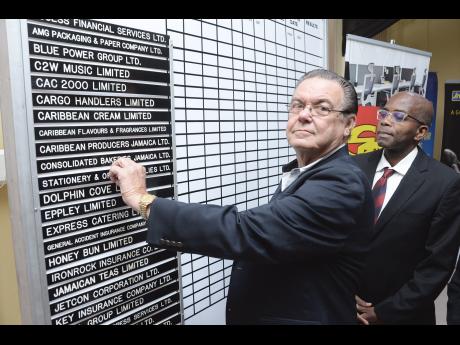Years of dedicated work by financial reformers have placed the Jamaican economy on a path where it is now ready for sustainable growth, says Curtis Martin.
The JN Group chief financial officer pointed to the critical consensus on the need for good financial management in the public and private sectors as being the basis of his confidence. He said that greater fiscal discipline, supported by an active civil society, is allowing market reforms to transform the economy.
“We are in a very good place with the economy poised to take off,” Martin said. “Therefore, we should experience much greater productivity from local factors of production, driving a significant increase in the annual growth rate.”
Martin previously worked with the Bank of Jamaica and several other financial institutions. As the youngest chairman of the Jamaica Stock Exchange and Jamaica Central Securities Depository between 2006 and 2011, he led the demutualisation of the stock exchange and the diversification of the organisation’s revenue stream through the development and launch of the junior stock market, JSE Trustee Services, JSE E-Learning Institute and the Caribbean Exchange Network.
“The financial market is benefiting from the increased sophistication and coordination of the Bank of Jamaica (BOJ) and the Ministry of Finance in their financial and economic programme,” Martin declared. “In addition, there is greater acceptance of the need for sound fiscal and monetary policies.”
The new fiscal and monetary consensus has helped to break the cycle of rising debt, high interest rates, and a steadily depreciating dollar, he stated. The country now enjoys the lowest interest rates in a generation, as the central government’s curbed debt appetite is no longer driving interest rates higher and weakening confidence in the Jamaican dollar.
The Government of Jamaica’s 180-day Treasury bill rates have trended down from 24.45 per cent in December 2008, to 6.13 per cent in July of 2017. Lower interest rates have been accompanied by increased liquidity in the financial system, thus making it easier for businesses to invest, grow and earn profits.
“We have a more dynamic private sector now, with expansion taking place on the junior and main index of the stock exchange demonstrating this very well,” he said. “At the same time, we are in a much more complex, dynamic and volatile environment than we had a generation ago.”




Leave A Comment